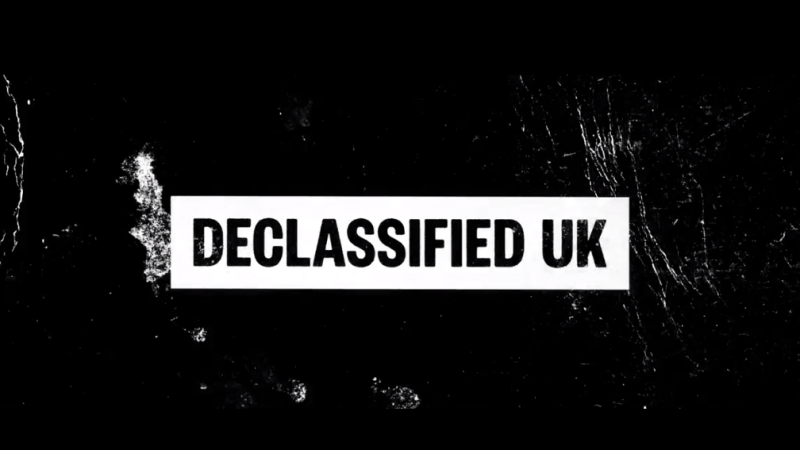But the report stops short of recommending sanctions for the staff involved.

A government commissioned review into the Ministry of Defence’s ‘blacklisting’ of investigative journalism website Declassified UK has revealed that it was labelled “a hostile website” on which the MoD “should not waste any time”.
Declassified UK, a media organisation producing journalism on UK foreign and security policies asked the British Ministry of Defence (MOD) press office for a comment on the case of a British soldier being investigated by the military police for protesting against the war in Yemen.
‘Blacklisted’
Lance Corporal Ahmed Al-Batati had protested near the prime minister’s office at Downing Street on 24 August 2020 saying the British government had “blood on its hands”.
Declassified journalist Phil Miller asked the MoD for a comment – but was fobbed off, with a spokesperson saying it would not be possible that day. Shortly after, an MoD quote on the same story appeared in the Telegraph.
When challenged on this, the MoD spokesman, responded: “We no longer deal with your publication,” as reported by Left Foot Forward in September.
The shocking story triggered questions in Parliament and an official review, carried out by former Downing Street spokesperson Tom Kelly.
‘Disturbing’ findings
On Monday he confirmed that a military officer on loan to the MoD press office suggested in July that Declassified “should be put on a list of organisations which the Department would not engage with, or rarely engage with, because it was not considered a reputable source of news”.
The MoD’s treatment of Declassified was widely criticised and led the Council of Europe to issue a level 2 “media freedom alert”. Leigh Day solicitors wrote to the MoD at the time on behalf of Declassified UK and the incident was raised in the House of Commons.
According to the review, the department director told Mr Kelly that his comment was not meant to imply that Declassified should be blacklisted, nor that the principle of blacklisting was in any way acceptable. Instead “he meant was that his team should not expend a disproportionate amount of time answering questions from it, given that its audience was relatively small compared to the mainstream media, and that it had a clearly hostile agenda”.
Mr Kelly reported: “The suggestion crossed a line – and, in hindsight, should have been called out as such. It was suggesting a course of action which, as far as I can see, was without precedent, and would have discriminated against Declassified and which, therefore, would have prima facie breached both the Civil Service Code and the Communication Service’s Guidance.”
However, he said that in his view, the failing was a result of an institutional reflex rather than any direct political bias. Mr Kelly added that it was ‘disturbing’ that experienced communications professionals in the Defence Communications Directorate did not challenge the direction they thought they had been given.
Off the hook
Recommendations in the report include issuing the Defence Communications Directorate with copies of the Civil Service Code and Government Communication Service Propriety Guidance, and reminded of the principles on a daily basis.
A monthly report to Government ministers should include an assessment of how communications staff have upheld their duty to be impartial. The report also called for ‘serious consideration’ to be given to the level of experience needed to work in the ‘highly pressurised’ MoD communications office.
However, there was no recommendation of disciplinary action for any of the staff involved, despite an apparent breach of the Civil Service Code.
Declassified editor Mark Curtis said: “We welcome this review and the evidence it has uncovered. But this suggests that Declassified was indeed blacklisted, which is contrary to the way that public officials are required to deal with media organisations. The MoD should admit it and not have let its most senior media official off the hook.
“The MoD is used to dealing mainly with compliant journalists who are happy to follow the official line. Declassified is different, and seeks instead to perform a public service by revealing what governments do.”
Leigh Day solicitor Tom Short added: “While our client welcomes the public confirmation in the Kelly report that the MoD press team crossed a line and discriminated against journalist from Declassified, serious questions about this Government’s approach to journalistic enquiries remain unanswered.
“That an entire departmental press team could have come to a mistaken belief that the director of communications had imposed a blanket ban is surprising and requires further explanation. Our client will be making further enquiries.”
The MoD was contacted for a response but was not immediately available for comment.
Josiah Mortimer is co-editor of Left Foot Forward.
Left Foot Forward doesn't have the backing of big business or billionaires. We rely on the kind and generous support of ordinary people like you.
You can support hard-hitting journalism that holds the right to account, provides a forum for debate among progressives, and covers the stories the rest of the media ignore. Donate today.



